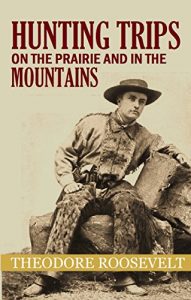". . . we should aim to exclude absolutely all persons who are known to be believers in anarchistic principles or members of anarchistic societies . . . this means that we should require a more thorough system of inspection abroad and a more rigid system of examination at our immigration ports . . . ."
THE virile philosophy, of which this little book is a compressed expression, has been called "Doctrine," because, rising above the plane of mere political or partisan utterance, it presents a remarkable exposition of the duties and rights of man and government, and particularly of our citizens and our government, from the view-point of the highest and broadest thought and feeling.
It is loftier in tone, though no less practical, than the utterances of the great Benjamin Franklin. It is full as lofty as, though far more practical than, the teachings of the great reformers.
And finally it comes as a gift to the Nation and to the world, bearing the moral sanction that could alone proceed from its being the product of the intellect and experience of one who has shown by a reasonably long and perfectly consistent public career, that he is among our great statesmen.
The times are fully in accord with the energizing spirit of work for the sake of work, achievement for the good of self and others which breathes through all these utterances. Brief as it is, its thoughtful perusal cannot, in any case, fail of producing a clearer grasp of the questions of the time, and a higher conception of citizenship. May many thousands derive from the reading this benefit.
Theodore Roosevelt Jr. (1858 – 1919) was an American statesman, author, explorer, soldier, naturalist, and reformer who served as the 26th President of the United States from 1901 to 1909.
THE virile philosophy, of which this little book is a compressed expression, has been called "Doctrine," because, rising above the plane of mere political or partisan utterance, it presents a remarkable exposition of the duties and rights of man and government, and particularly of our citizens and our government, from the view-point of the highest and broadest thought and feeling.
It is loftier in tone, though no less practical, than the utterances of the great Benjamin Franklin. It is full as lofty as, though far more practical than, the teachings of the great reformers.
And finally it comes as a gift to the Nation and to the world, bearing the moral sanction that could alone proceed from its being the product of the intellect and experience of one who has shown by a reasonably long and perfectly consistent public career, that he is among our great statesmen.
The times are fully in accord with the energizing spirit of work for the sake of work, achievement for the good of self and others which breathes through all these utterances. Brief as it is, its thoughtful perusal cannot, in any case, fail of producing a clearer grasp of the questions of the time, and a higher conception of citizenship. May many thousands derive from the reading this benefit.
Theodore Roosevelt Jr. (1858 – 1919) was an American statesman, author, explorer, soldier, naturalist, and reformer who served as the 26th President of the United States from 1901 to 1909.











